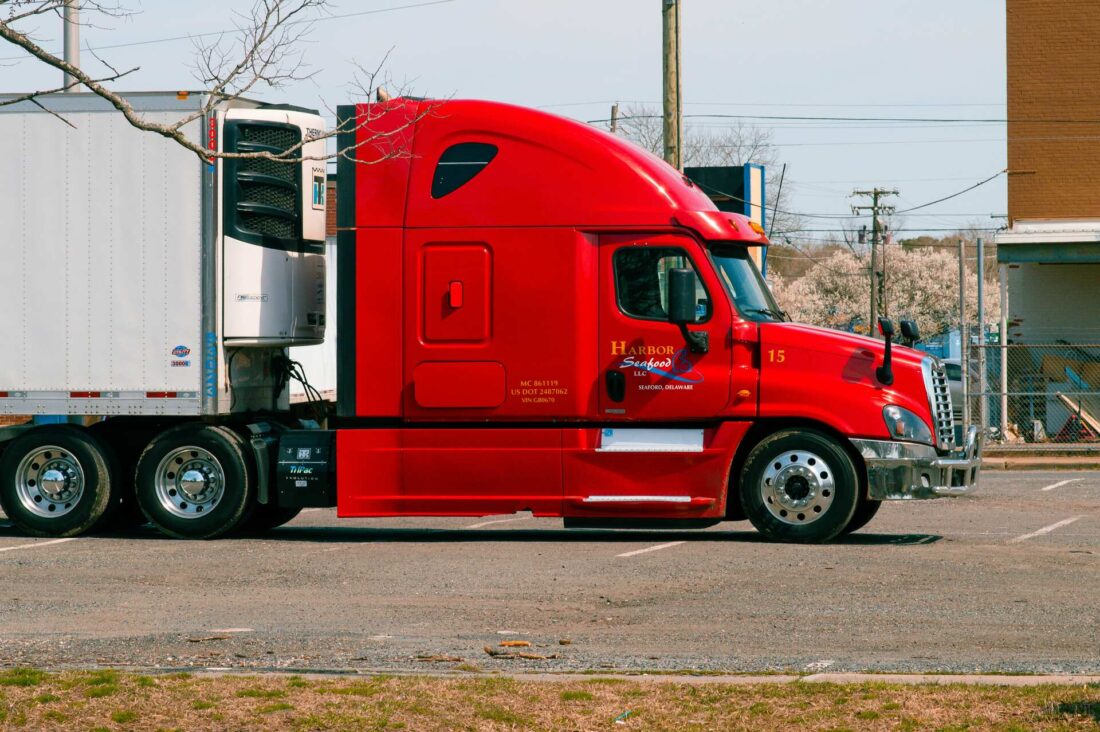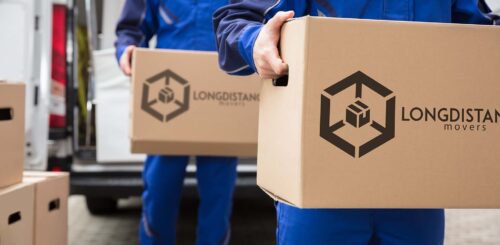If you’re planning on moving across the country, you need to be aware of the Federal Motor Carrier Safety Administration (FMCSA) regulations and how they will affect your trip — it’s not as simple as packing up your car and hitting the road.


This comprehensive guide covers everything you need to know about FMCSA rules for commercial carriers, including insurance requirements and different safety standards. Everything regarding licensing and checking the legitimacy of movers will be mentioned here, so no matter your experience level or size or whether it’s relocation after college or for a new job – this guide has all the information you need to stay safe during your long-distance move.
Let’s Start With Basics – What Is Federal Motor Carrier Safety Administration?
FMCSA stands for Federal Motor Carrier Safety Administration. It is an agency of the United States Department of Transportation (DOT) that regulates the trucking and bus industry in order to keep our roads safe and allow us to move efficiently. They include over 500,000 commercial trucking businesses, over 4,000 interstate bus businesses, and over 4 million holders of CDL (commercial driver’s license).
Federal Motor Carrier Safety Administration (FMCSA) rules and regulations are constantly changing in order to keep up with the ever-evolving industry of trucking and busing operations. Carriers must stay up to date on all regulations and comply with them in order to stay compliant and safe on the road. FMCSA is committed to keeping our roads safe by setting high standards for vehicles, drivers, and carriers. By following their rules and regulations, everyone can be assured that they will be traveling safely on the roads.
What Is Their Mission?
The US Department of Transportation Federal Motor Carrier Safety Administration works to reduce accidents, injuries, and fatalities involving large trucks and buses by setting standards for vehicles, drivers, carriers, and other safety-related areas. FMCSA also helps law enforcement officers enforce the regulations they set, and they conduct compliance reviews of carriers to make sure they are meeting their standards. They also provide educational resources to help drivers and companies meet these standards. Through its mission, FMCSA is dedicated to making our roads safer for everyone, and thus making your move to another state alone stress-free. They do this by setting safety standards for vehicles, drivers, carriers, and other areas.
The following video explains what a trucking company needs to get a USDOT and MC Authority.
Why Is FMCSA Important When You’re Moving Across the Country?
Moving across the country can be a daunting task, and even traumatic to some, and it’s important to have all of your bases covered and move without stress. We’ve already stated the Federal Motor Carrier Safety Administration (FMCSA) is an agency within the US Department of Transportation that regulates commercial motor vehicles operating in interstate commerce. This includes trucks, buses, tow trucks, and even some passenger cars.
If you’re looking for some interstate relocation tips, keep in mind that by ensuring that all commercial motor vehicles operating in interstate commerce meet FMCSA standards, the agency provides peace of mind for those relocating across the country. It allows customers to rest assured that their belongings are being transported safely and efficiently by a qualified carrier who is following all applicable regulations. When the best time of year to move approaches, having access to records of driver violations and accidents makes it easier for customers to make informed decisions when selecting a transportation company.
What Is the Primary Goal of the Federal Motor Carrier Safety Administration (FMCSA) National Registry?
The primary goal of the Federal Motor Carrier Safety Administration (FMCSA) National Registry is to ensure safety in the trucking industry by requiring all commercial motor vehicle drivers to be tested and certified. The FMCSA National Registry also serves as a central repository for driver information, including medical examination results, knowledge tests passed, and violations or disqualifications.


How Do You Check if a Moving Company Is Reliable?
There are several ways to check if a relocation company is legitimate and reliable. By following these relocation tips, you can ensure that your move goes as smoothly as possible with a reliable and reputable moving company.
Check Online Reviews
Online reviews are one of the best ways to evaluate any service, including movers. One of the best long-distance relocation tips is to look for customer comments and feedback. You can find them on independent review sites like Google or Yelp to get an honest opinion of their services.
Ask for References
Most reputable moving companies can provide references from previous customers. Ask for these references and contact them to get an idea of the experience they had with the company.
Check Certifications
Trustworthy moving companies must have a valid USDOT and MC number, meaning they are registered with the US Department of Transportation and meet all safety standards.
Get an In-Home Assessment
If possible, ask the moving company to come to your home and provide an estimate for the move by doing a home inventory. This will give you a chance to meet with them in person and get a better idea of their reliability. Additionally, it will help ensure that your belongings are well taken care of throughout the move.
Read the Contract
Before signing a contract, make sure you understand all of its details and that everything is in writing. A reliable long-distance moving company should provide you with clear expectations, including specifics about any additional services or fees.
You Should Also Understand Your Responsibilities When You’re Hiring Movers
It is important to understand your responsibilities when hiring a moving company. By understanding your responsibilities when hiring a moving company, you can make sure your relocation is stress-free and successful. Taking the time to properly prepare for your move will help ensure that it is completed on time and within your relocation budget. Here’s what you should do:
- You should read all the important documents issued by your mover and make sure you understand the terms and conditions of their services.
- Additionally, it’s crucial for you to be available for both the pickup and delivery of your items so that any problems or discrepancies are immediately caught and discussed. If you know when the movers will be arriving at your new home, you can arrange to have all of your belongings ready and accessible for easy loading.
- Also, it is important to provide special instructions to the moving company so that they understand exactly how you want them to transport your items.
- Be sure to make an ultimate checklist of all items that will be moved, and if possible, document their condition before the move. This way, you can ensure that your belongings arrive at their destination in the same condition they left.
- Finally, make sure to have everything from your moving out list organized and boxed up to minimize confusion during the relocation process. Once your movers have arrived, show them all of the items that need to be moved so that they can accurately estimate the number of boxes and other materials needed for transport. This part can be skipped, though, if you choose to invest in packing services.
This will help ensure that the move goes smoothly and efficiently, as well as help you avoid any additional costs or service charges.


Movers Offer Different Liability Options
Moving companies offer a variety of liability options to protect your belongings during the move. The most common types of coverage are Full Value Protection, Released Value Protection, and Third Party Insurance.
Full value protection covers the full replacement cost of any items that are lost or damaged in transit, up to a predetermined limit based on the total weight of the shipment. Released Value Protection covers a flat fee per pound of items lost or damaged in transit and is typically the least expensive option. Third-Party Insurance, while more costly than the other two options, offers the most comprehensive coverage and includes additional protection for certain types of damage, such as theft or fire.
No matter which type of liability protection you choose, it is important to read the fine print and understand exactly what items are covered and the total cost of the coverage. Understanding your options can help you make an informed decision that best suits your needs.
Can FMCSA Help if You’ve Been Scammed by Movers?
The Federal Motor Carrier Safety Administration (FMCSA) does not regulate moving companies or consumer complaints about moving services. If you have been scammed by cross-country movers, contact your state attorney general’s office, the Federal Trade Commission (FTC,) and the Better Business Bureau to file a complaint and seek legal assistance. You may also have the option to file a complaint with the Department of Transportation’s Office of Inspector General.
The FMCSA does not provide financial assistance for moving-related complaints. However, you may be able to seek compensation from the mover or find out more information about the company by filing a complaint with them. It is important to remember that if you were scammed, you may be entitled to some type of restitution. Relocation statistics data shows that the BBB receives around 13,000 complaints annually on average, so double-checking if a company is legitimate before anything negative happens can be of great help.


Ensure You Leave a Review for the Moving Company on FMCSA Website
When it comes to finding a reputable moving company, reviews are essential. Reading other customer experiences can really help you hire the best long-distance movers for your move. That’s why you should always be sure to leave a review for the moving company you used on the FMCSA website after your move is complete.
This review can help others who are looking for a reliable moving service in the future. The FMCSA website is an official government agency that provides customers with information and reviews of various companies, so you can be sure that your review will be taken seriously.
The website also allows you to rate the company using a 5-star rating system. Be sure to accurately describe your experience with the movers and provide helpful information to other customers who may be looking for reliable long-distance moving services.
Auto Transport
Move your car across the country in an open or enclosed trailer – for an affordable fee. We offer car transport as a standalone service, but you can bundle it with your household move and get a hefty discount.
Learn moreStorage Services
Our spacious climate-controlled units will protect your things until the drop-off. No need to worry about them because all items are labeled and secure, and each customer gets a dedicated unit mixup isn’t possible.
Learn moreMoving Insurance
All your stuff is secure with Long Distance USA Movers, but in case something does happen to it, there’s a moving insurance policy in place. We offer both basic Valuation Coverage and Full Value Protection.
Learn moreFMCSA Ensures You Are Relocating Safely
FMCSA, along with the DC Department of Motor Vehicles (DMV,) continues to be an important part of keeping roads safe for everyone, even for those relocating in the rain. Through its mission, the FMCSA strives to keep roads safe for everyone by setting and enforcing standards for commercial vehicles and drivers. They also work with law enforcement officers to ensure that all carriers are following their regulations to further reduce accidents, injuries, and fatalities involving large trucks and buses.
Additionally, they provide educational resources to help drivers and companies meet these standards. By working towards a safer road environment, FMCSA is dedicated to keeping our roads safe for everyone. So, not only do you need movers to help you move to the suburbs – you also need this agency to ensure everything is done securely and safely.







